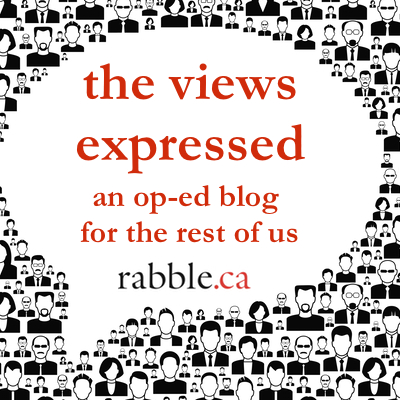Editor’s Note added Sept 23: All of the core organizers of the People’s Social Forum were people of colour. We regret the omission of this prior to publishing and sincerely apologize for the delay in updating this article. The author of this piece uses “organizers” generally to mean the individuals who attended and put on workshops — not the organizers of the PSF as a whole. A response piece from PSF organizers is available here.
I have a lot of memories of powerful moments from the most recent Peoples’ Social Forum (PSF) in Ottawa — hearing the Algonquin grandmothers speak about their land becoming increasingly polluted, meeting other journalists to talk about the barriers in our field and hearing the ambitious, hopeful plans of the various assemblies, ready to take action. The entire experience was inspiring.
But throughout, I was struck by the overwhelming whiteness of the forum. From the folks leading panels, to the participants, to the analysis at the few workshops and assemblies I was able to attend, it was unavoidable.
Seemingly, the PSF checked all the right boxes to have an inclusive, welcoming space. There was a People of Colour caucus, a drop-in space specifically for people of colour and a solid equity statement that was often read aloud from the program. But the equity statement did not translate into attendance by more organizers of colour.
At one point I rushed by a flip chart list of tips on living in solidarity with people of colour posted in a building. I went back a few minutes later to read it and found that it had been removed.
In an assembly, one participant spoke about the importance of putting the environment on the very back burner and staying focused on the rights of people to accomplish meaningful social change. An Indigenous woman responded, noting that the Forum was happy to have the Algonquin grandmothers come into the assembly to drum and sing, but not be present during the assembly where white folks talked about Indigenous rights and their land as separate struggles. She walked out immediately after.
There was some light shed on what might be missing during the final assembly report backs. The representative of the assembly on migrant justice said it best, referring to the declaration of the Peoples’ Social Forum drafted by participants:
“Immigrants are mentioned once in this declaration. We can’t take this back to our communities (…) We need to place racialized peoples and Indigenous peoples in the centre, place immigration and status in the centre, to appeal to our communities, for this form and declaration to appeal to our communities.”
This kind of invisibility for people of colour at the PSF isn’t new. Six months prior to the Forum, the People of Colour caucus worked to change the name of the Forum from the original title Forum de Canada, Quebec et Jeunes. The caucus asserted that:
“Many peoples of colour do not identify with nationalist blocs of Canada and Quebec and are actively excluded for example; temporary migrant workers and non-status people are legally excluded and face evictions from Canada everyday. We can speak of the tragic death of Ge Genbao and Lui Honglaing, in 2007 in the tar sands and the subsequent deportation of 130 immigrant workers after this tragedy. It is important to note that 1 in 20 people in Canada are not Canadian.”
The caucus also, many months prior to the actual Forum, reiterated “that movements and groups representing communities of color struggles need to be part of active leadership and decision making roles of the social forum at all levels.”
Though there was a conscious effort to place Indigenous activists, organizers and experiences at the core of the Forum, this same effort didn’t seem to pan out when it came to including organizers of colour. Though there were folks of colour working on the Forum, their work did not seem to be as prominent.
Again, during the report-backs from the assemblies, representatives from the People of Colour’s caucus called out the whiteness of the forum, beginning their report with “Dear White People…”
They stated that their signs for specific people of colour-only spaces were repeatedly removed and that the vast majority of workshops and presenters did not reflect an anti-racist framework that put people of colour at the centre.
There could have been many factors contributing to the problematic whiteness of the PSF, but I think that the organizers there named a lot of them.
Just like the activists of colour at the PSF said, organizers at the PSF need to keep working to mandate an anti-racist, decolonizing framework at all levels of the Forum. They need to not just talk about oppression, but have interlocking oppressions visibly represented by workshop organizers and internal organizing politics. They need to re-centre the entire forum to put people of colour and Indigenous folks at the heart of the process and follow their lead.
Anti-racist white folks (like myself) need to continue to call out the whiteness in our social movements and stop staying silent when we see the same problematic erasure in mainstream society replicated in our organizing.
Steff Pinch is rabble’s activist toolkit coordinator.



